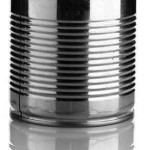How well do you know Chapín Spanish?
- Tener un gran clavo
- (Ser) Pura lata:
- Echarle el muerto (a alguien)
written by Guillermo Zuleta
Despite my name, Spanish is my second language. I thought I knew it well enough, having taken lessons and having spent time in Spain, Chile and Argentina. I thought I could hold a conversation with any native speaker!
It was my second month working in a bar in Guatemala; as a bartender I had the opportunity to meet a lot of people. Some came with friends and had little or nothing to share with the man behind the bar, but others simply needed someone who would listen and talk … and I certainly enjoy both activities.
It was on a Monday night, I remember it clearly because the place was nearly empty. This young man sat by the bar drinking beer and I asked a simple “how is it going?”
I certainly didn’t expect to get a free lesson of what I call Chapiñol, it is maybe 50 percent Spanish and 50 percent Chapinismos. His name was Miguel and he started throwing phrases like: tengo un gran clavo or me echan el muerto. I simply replied yes and/or no, but in truth I had no idea what he was talking about, “I have a big nail” What ???
So, I wrote some of the phrases I heard that night and asked my Spanish-Chapin speaking friends to help me out.
(Ser) Pura lata: literally (to be) like a can; (to be) pure tin. No, they are not talking about how your body looks like nor is it that your skin is particularly hard. The phrase means that one is tough or insensitive, and it is used regularly when one makes a cruel joke or makes fun of others. E.g. ¡No seas pura lata con tu amigo! (Don’t be cruel to your friend!)
Estar colgado (alguien): lit. To be hung (someone). Somehow it does imply a bit of pain, not in the neck, but in the heart if the one with whom one is in love doesn’t feel the same, as it means that someone is in love. E.g. Manuel está colgado de Karin. (Manuel is in love with Karin.)
Ser un huevón: lit. To be a big egg. Well, again, not describing the physical appeal, rather talking about those who can easily beat any record, as long as it is about laziness. This phrase, which is particularly popular, describes someone who wouldn’t work, study or perform activities that require action. I was told that this can be a bit offensive, but that depends on how it is said and, of course, if the one who says it is familiar to the lucky one who is described. E.g. ¡Qué huevón sos! (How lazy you are!)
Vos no la hacés: lit. You do not do it? You do not make it? I am honest here, best as they tried to explain it, I still don’t understand how that phrase could mean: I cannot believe what you do. It is not acceptable that you do that, when they are actually saying that one doesn’t do it. E.g. Vos no la hacés, ¡ya no tenés dinero! (You are crazy! You already ran out of money! )
Mirá pues: lit. Look then. Okay, look. I know this might seem pretty clear, but one starts to wonder if one has totally understood it after hearing it over and over. It is some kind of key phrase to start every second sentence. I think it is the equivalent to our: so or the famous you know. In any event, if you hear it, don’t turn your face around trying to see something, just pay close attention and you will be fine. E.g. Mirá pues, esto es fácil. (Okay, look, this is easy.)
Tener un gran clavo: If you hear someone saying “tengo un gran clavo” (lit. I have a big nail), don’t think they are talking about a tool that will break some world records, that expression usually means that someone has a big problem. Therefore, if the phrase goes: “no hay clavo,” (lit. there is no nail), you will know that it implies that everything is fine or that things go well. E.g. Tengo un gran clavo con mis padres! (I have a big problem with my parents.)
Echarle el muerto (a alguien): lit. To throw (to pour?) the dead one (over someone). Thank God, it has nothing to do with real dead bodies! It simply implies that you, or more conveniently someone else, is seen as guilty. It is very common that someone wants to put the blame on someone else. In that case, the one who will not take it would say: a mí no me echen el muerto. E.g. ¡Siempre me echan el muerto cuando algo sale mal! (They always blame me when things go wrong!)
Ahí la llevo: lit. I carry it there. Again, something similar to “mirá pues,” there is not actual “it” that you can see, watch or look at. It is generally used to say things are just fine, not too good, not too bad. This is a probable reply to questions such as: “¿Cómo estás?” or “¿Cómo te va?” (How are you? How is it going? Respectively) This phrase has close relatives: “pues ahí voy” (lit. Well, there I go) or “pues ahí va”, (lit. Well, there it goes) which basically mean the same. E.g. ¿Cómo te va Manuel? – Pues, ahí la llevo. (How is it going Manuel? — Well, I am just fine.)
Even though the list goes on and on, there are concepts that I found too difficult to understand; others… well, I guess Revue cannot publish such phrases, but they are really funny and/or clever. I think that is what makes regional expressions really special.


